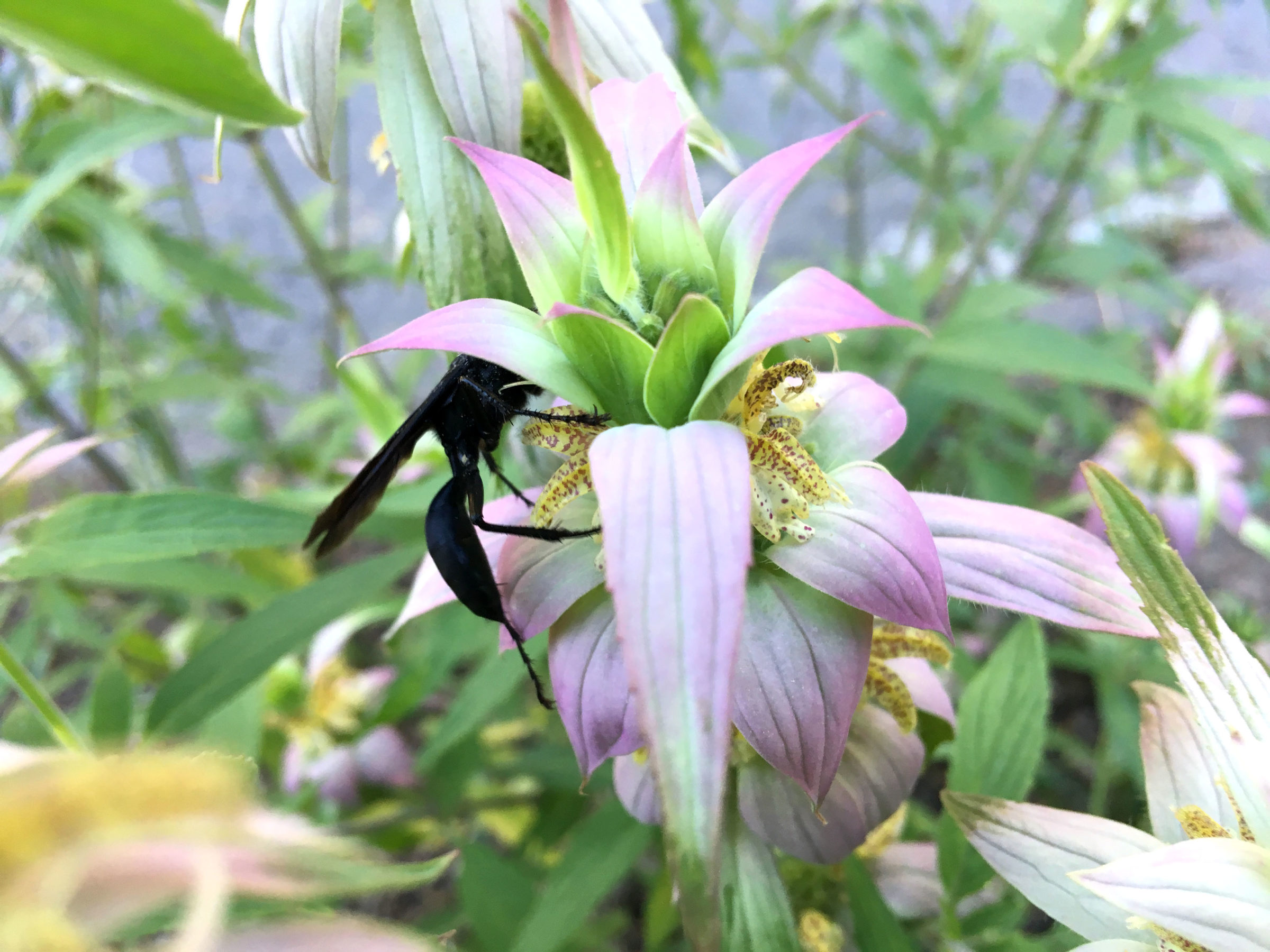
Pollinator Week 2021
Great Black Digger Wasp on Spotted Horse Mint, Photo Credit: Rachel Lindsay
Celebrating pollinator Week
Fourteen years ago the US Senate approved the Pollinator Partnership’s request to designate a week in June to celebrate the role that pollinators play in our ecosystem. Since then it has grown into an international event, with governmental, non-profit, and educational institutions advocating for pollinators. In the fields of ecological design and regenerative agriculture, we work to support pollinators every week of the year. Loss of habitat and climate change are contributing to a decline in the populations of many pollinators; in fact, the Rusty Patch Bumble Bee was recently added to the list of US Endangered Animals. Although bees are often the first pollinator we think of, other creatures like ants and bats also provide pollination services.
Invertebrates are a keystone species in our ecology, pollinating 85% of our agricultural crops. They also provide food for birds, mammals, and amphibians; process waste products; help build and maintain healthy soils; and prey on agricultural pests. They deserve the additional recognition they get during this week!
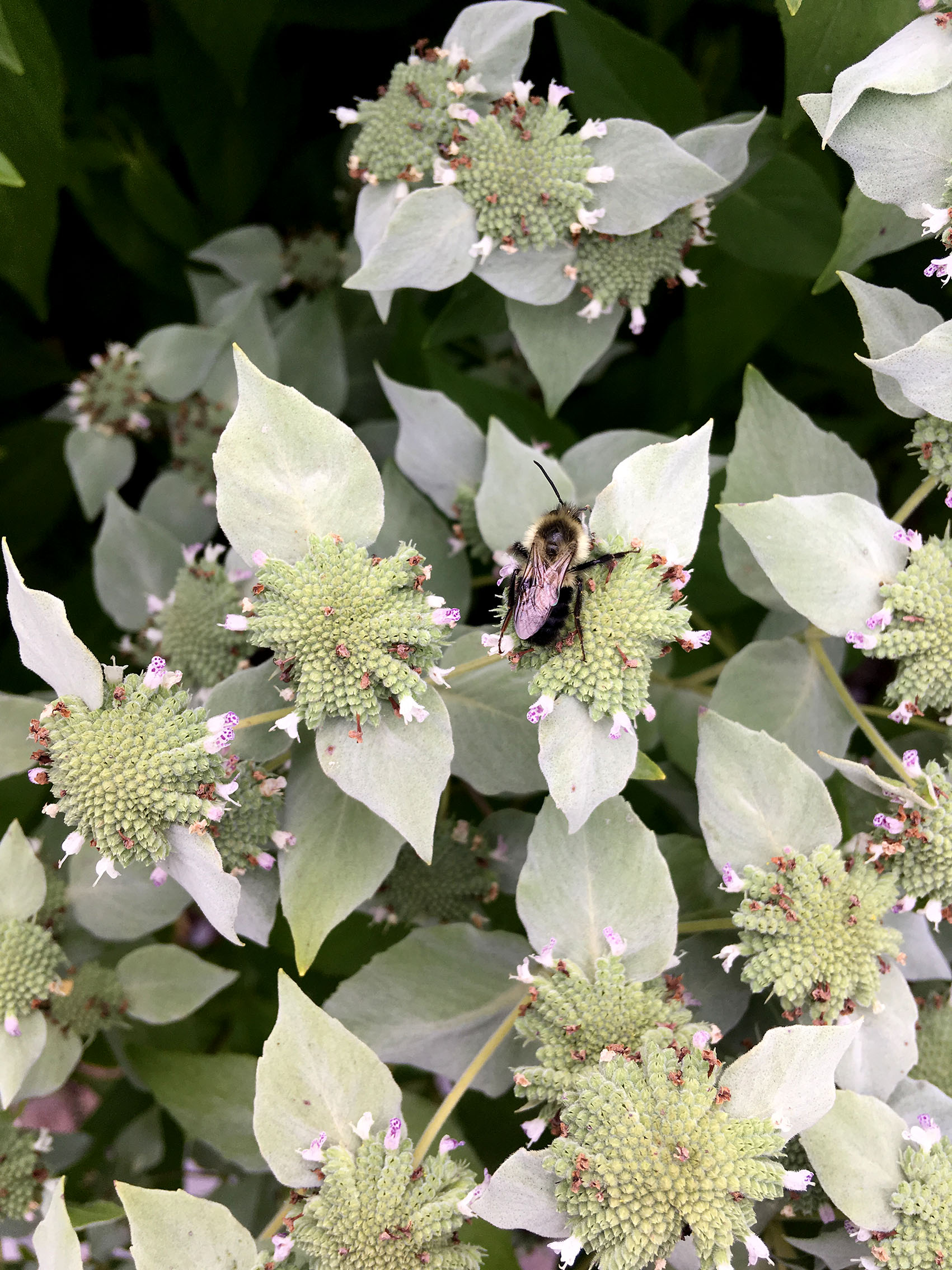
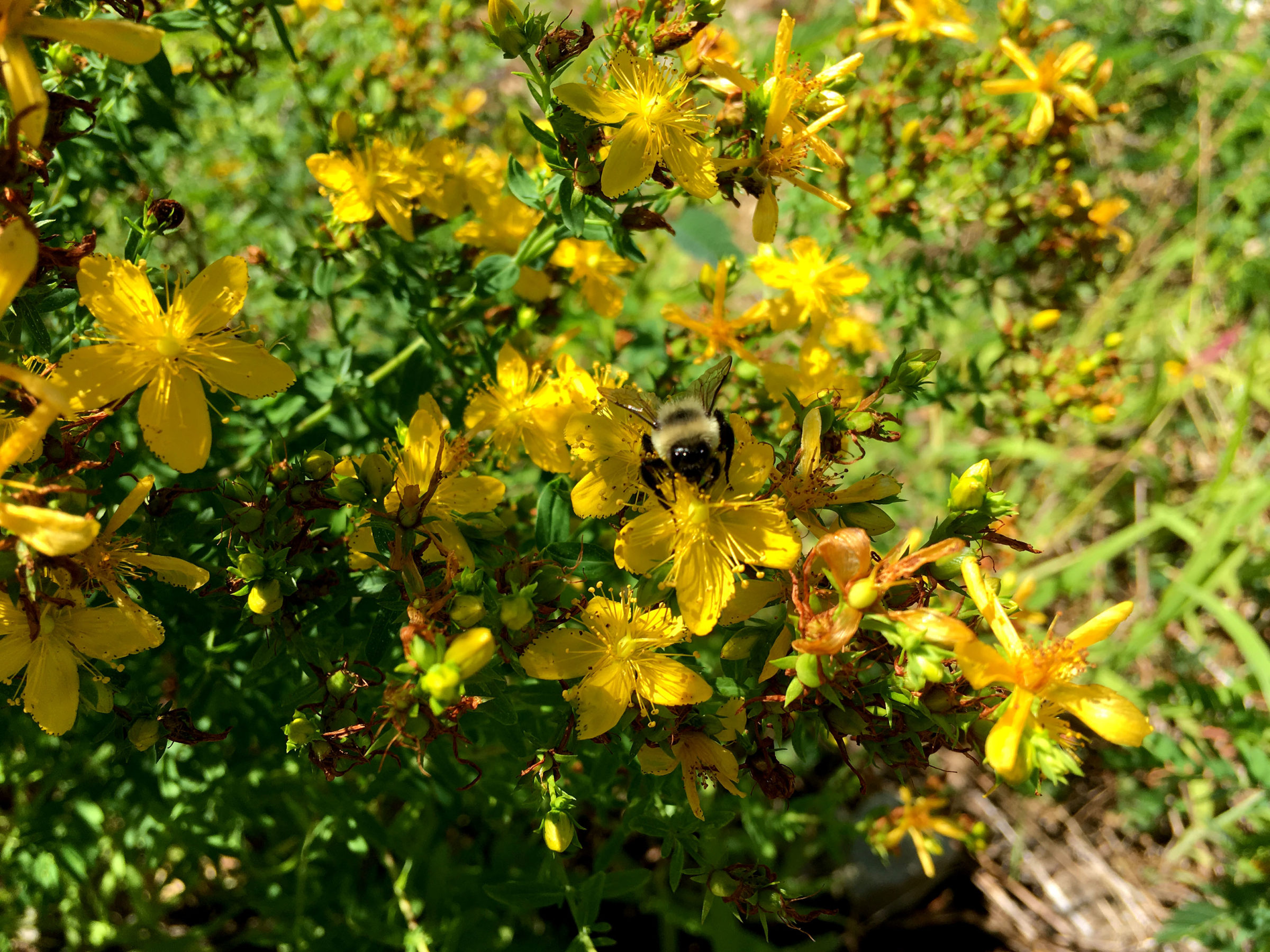
good news for pollinators
Here are some recent and current events that bode well for the continued recognition of and support for pollinators:
+ This March the Massachusetts’ Pesticide Board Subcommittee passed a policy to restrict the sale of neonicotinoid pesticides (“neonics”), a relatively new insecticide that has been shown to impair bees that visit treated flowers, in retail locations in the state.
+ UMASS now offers a pollinator-friendly solar PV certification program to encourage improving the land use on large solar farms for habitat creation.
+ Our home town of Greenfield MA recently installed a series of bee sculptures painted by local artists during this year’s ‘Bee Fest’. The festival was established to honor Reverend Lorenzo L. Langstroth, the “Father of Modern Beekeeping,” a citizen scientist who invented and patented the modern moveable frame beehive in 1852. Langstroth’s design, based on his discovery of “bee space,” is still in use worldwide. He was pastor at Second Congregational Church in Greenfield Massachusetts from 1843 to 1848.
+ We kicked off Pollinator Week with a workshop series at the Springfield Museums focused on the whys and hows of pollinator-supporting rain gardens.
+ You can sign up for iNaturalist and participate in a Pollinator BioBlitz to identify as many pollinators as possible this week. If you found them in a landscape we designed for you, let us know!
Rachel Lindsay, Senior Designer

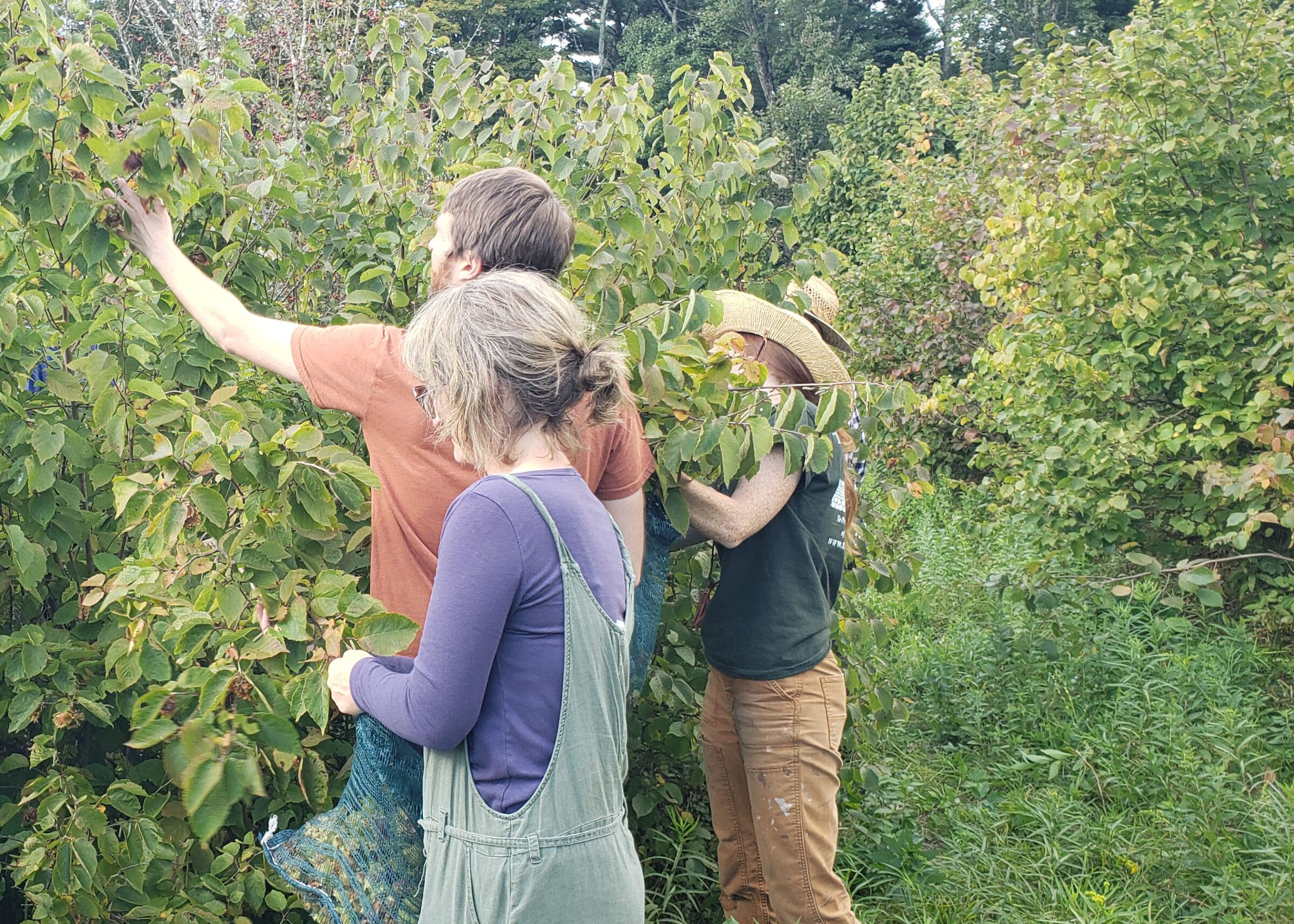
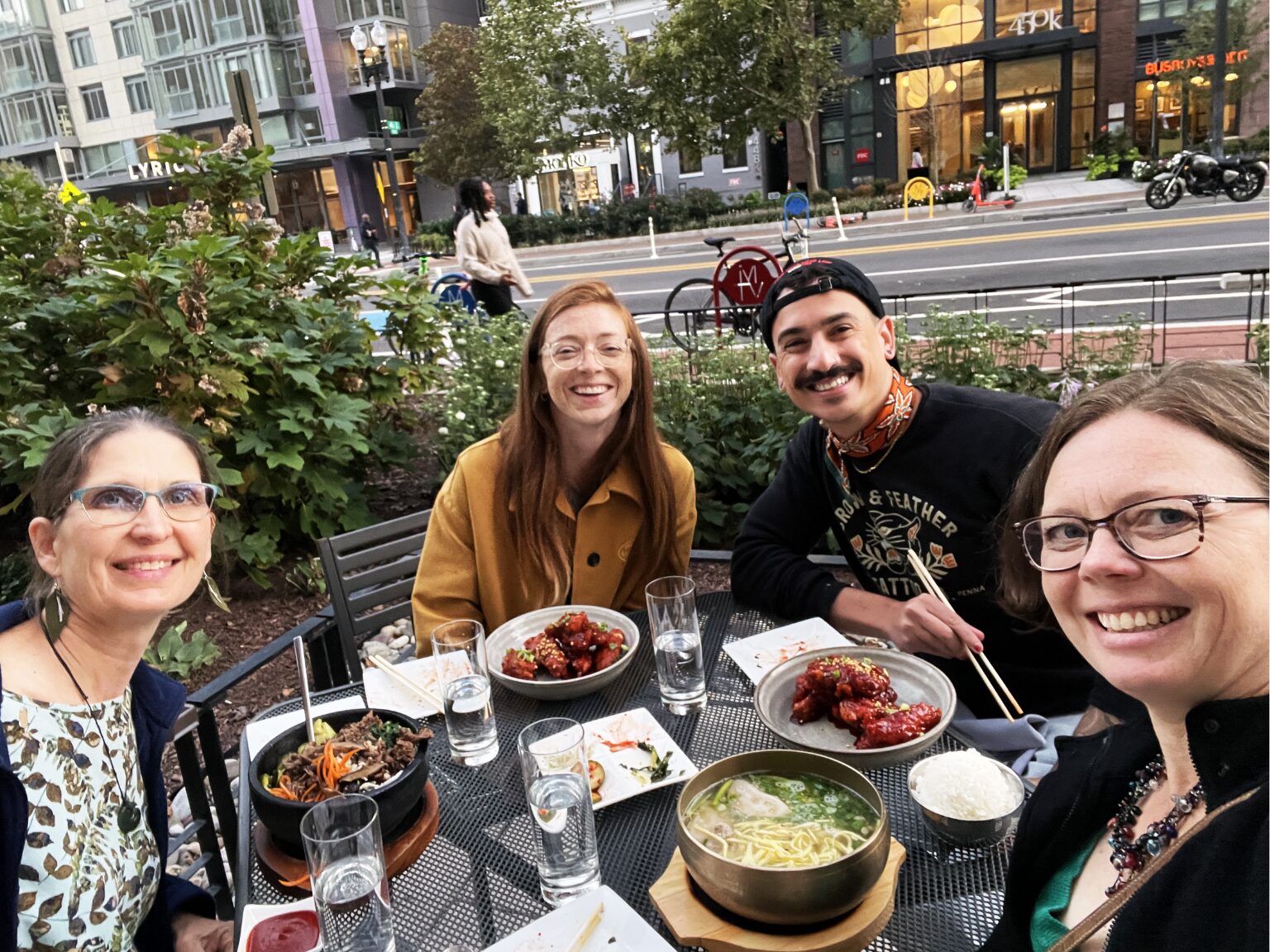
Would you allow me to use a photo or two from your website in a power point presentation to encourage planting native plants? I’d give you credit.The spotted bee balm caught my eye as we have it here, too.
Hi Dianne – Of course! I’ll email you directly.